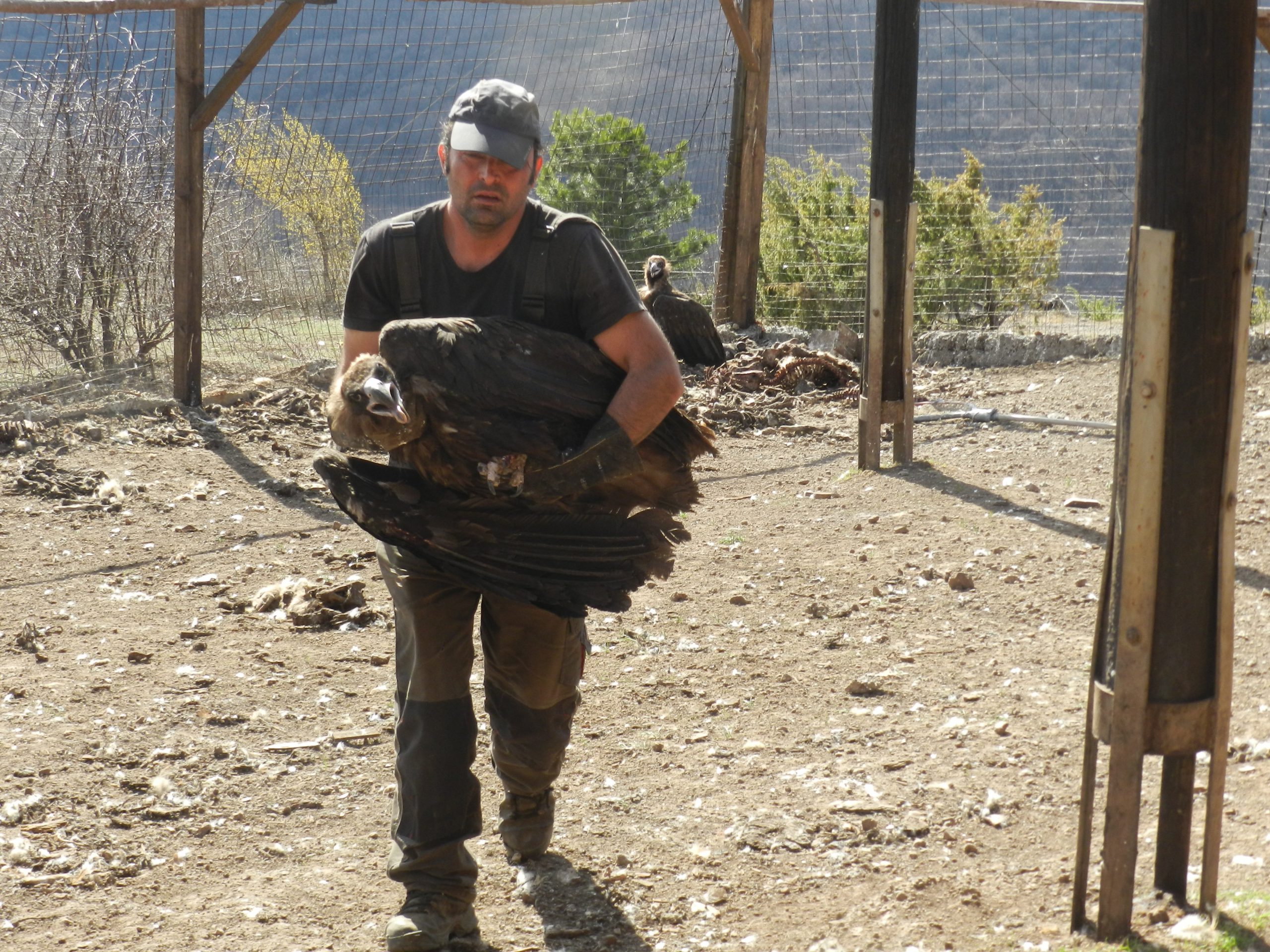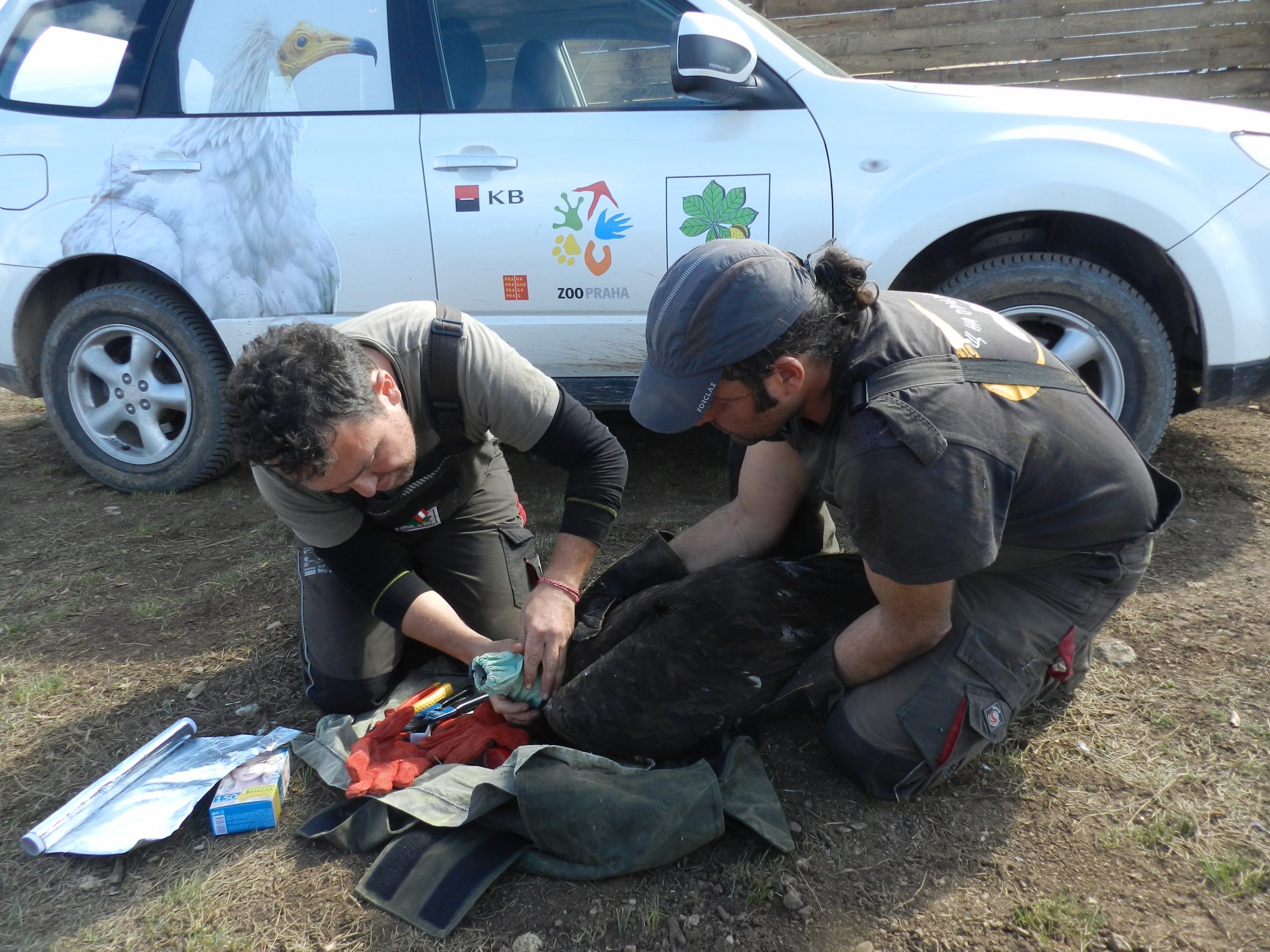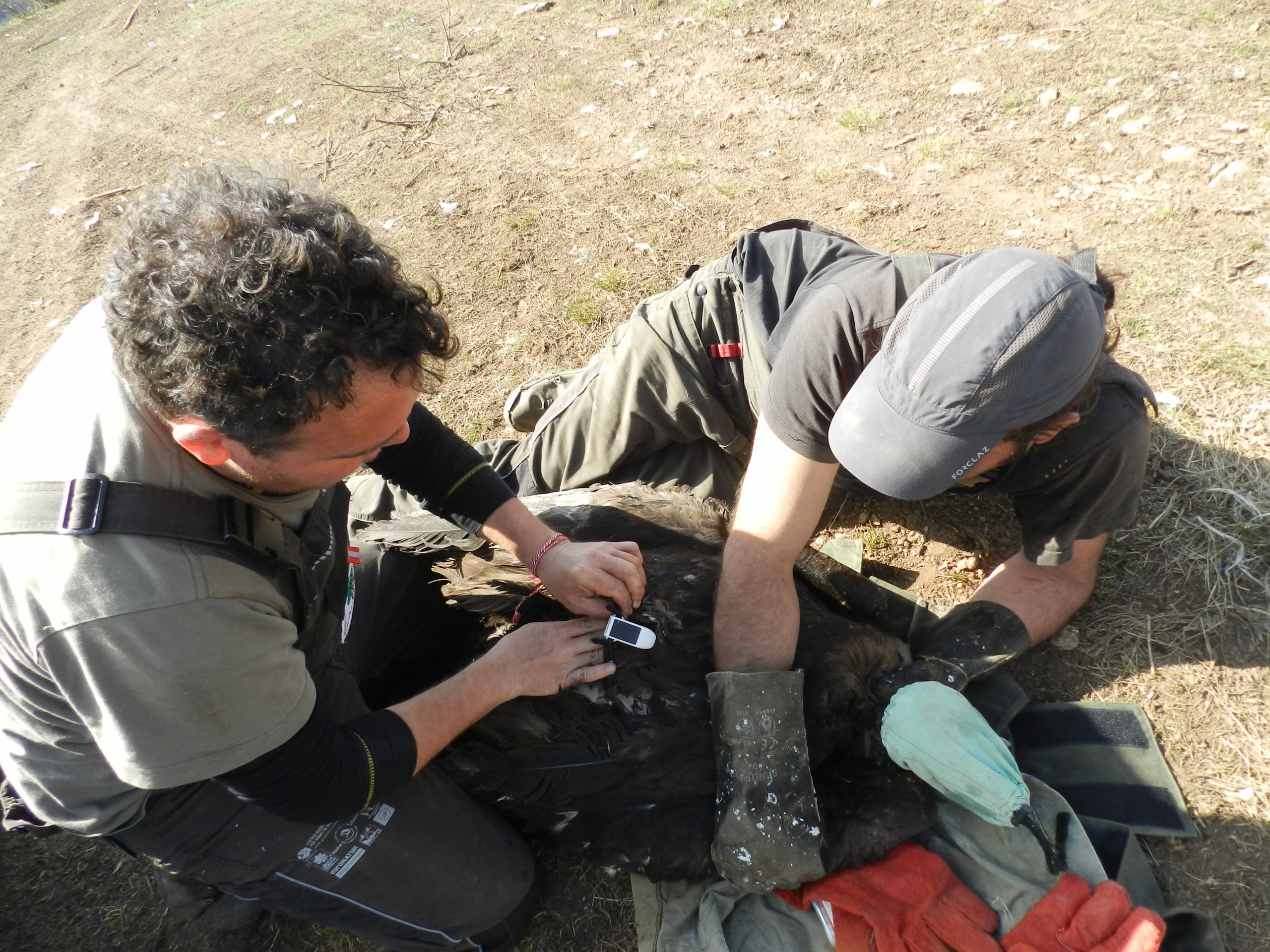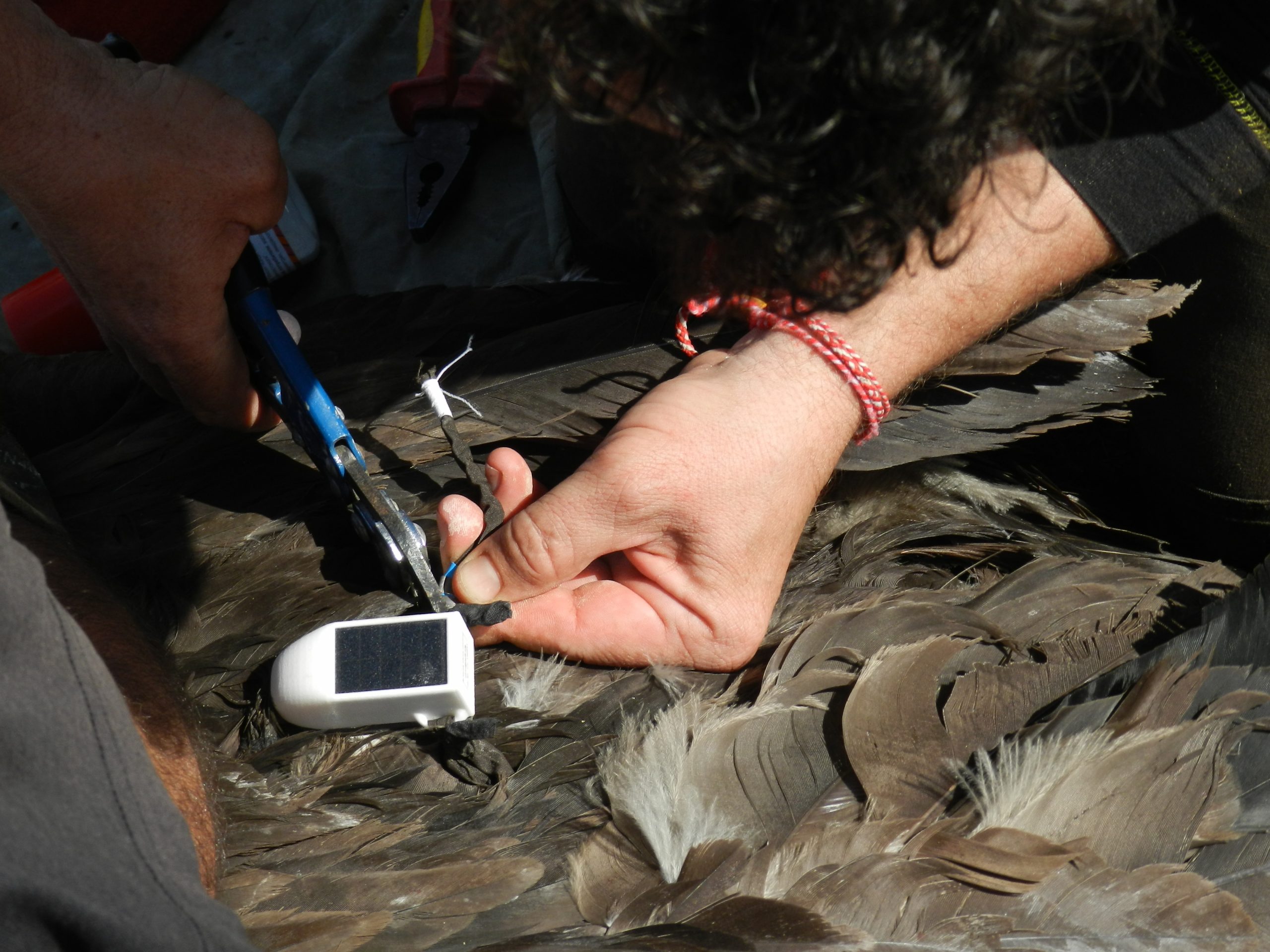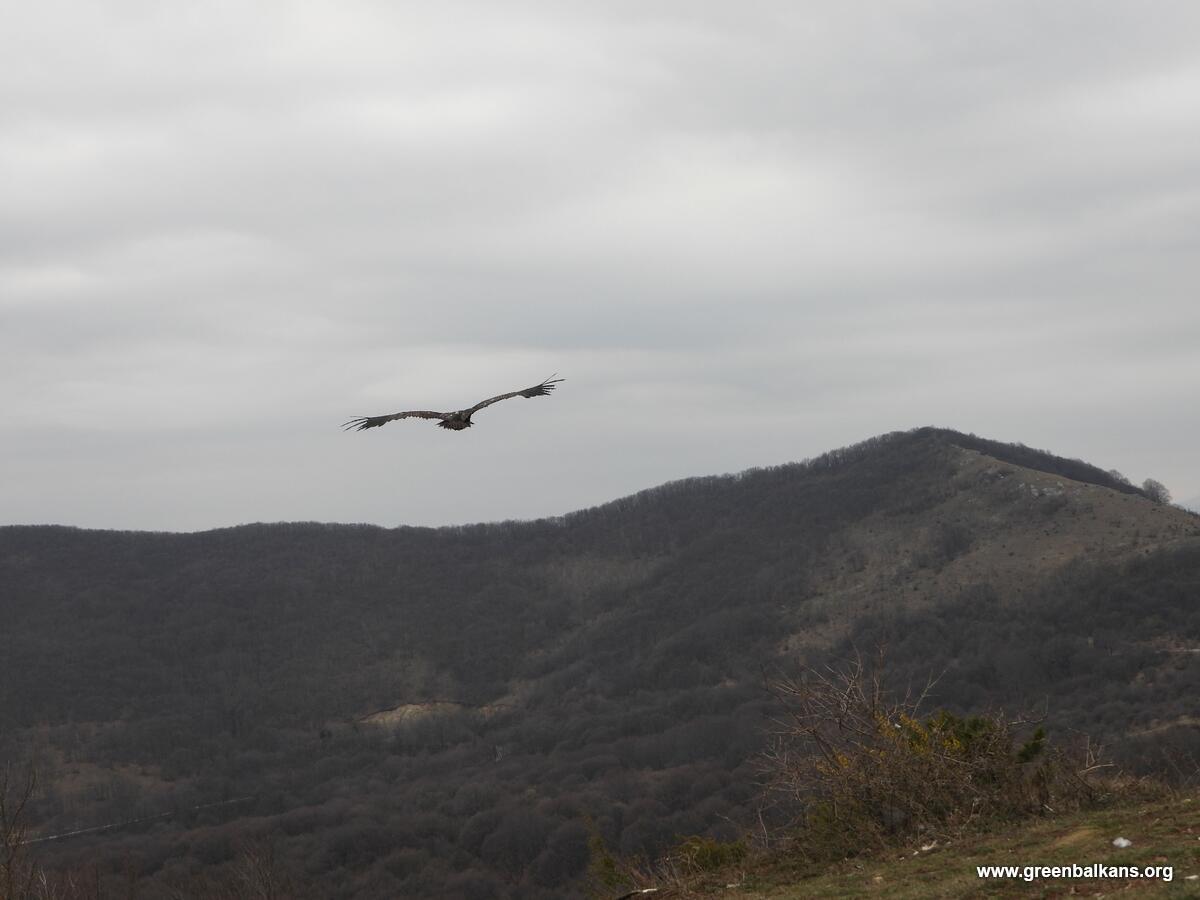
In July 2018 our Vultures Back to LIFE project reintroduced the Cinereous Vulture back to Bulgaria and now four more birds have been released into the wild in our efforts to return the species to the country since since it was declared extinct back in the 1980s.
From Spain to Bulgaria
As part of our ongoing collaboration with partners in Spain’s Extremadura region including regional autonomous government, Junta de Extremadura, regional agencies for the protection of the environment and nature conservation (Consejeria de Medio Ambiente y Rural, Politicas Agrarias y Territorio) and wildlife rehabilitation centres managed by regional non-governmental organisation AMUS (Acción por el Mundo Salvaje) and Los Hornos we transported 12 Cinereous Vultures from Spain to Bulgaria.
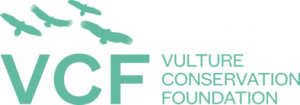
The adaptation aviary at ‘Sinite kamani’ Nature Park (C) Green Balkans
After being quartined at the Green Balkans Wildlife Rehabilitation and Breeding Center the 12 birds have spent the last 10 months in aviaries at Kotel and ‘Sinite kamani’ Nature Park in the eastern Balkan Mountains adapting to their new home.
Released back into the wild
The two birds at the Kotel aviary, Zlosten and Juan, were released on Friday 15 March whilst the other two birds, Kutelka and Balkan, were released six days later from the Sliven aviary. The four birds were fitted with solar powered GPS transmitters that weighed around 30-40g that send location data over the mobile communications network to help us track their movements and had some of their feathers bleached to help identify them from a distance.
Fitting one of the Cinereous Vultures with a GPS transmitter (C) Green Balkans
The birds spent the first couple of days after the release close to their release aviaries, but after the braver of the birds, Juan and Balkan, started exploring the region. Kutelka also began exploring the region and was quick to find food the team had left nearby in advance.

The group of birds have also encountered other vultures when a wild Cinereous Vulture visited the Kotel site and fed there. We are monitoring Balkan and Zlosten closely as they have yet to feed, but with plentiful food at the supplementary feeding stations the team from the Foundation for Wild Flora and Fauna and Green Balkans are optimistic they will soon feeding.
Vigilance against poisoning
As these birds explore their new home and following the tragic death of Ostrava, one of the reintroduced Cinereous Vultures, in Greece back in February we urge all our partners to continue their work being vigilant against illegal wildlife poisonig. Over the last couple of weeks we have received several reports about poisoning incidents across the region and we are currently at the peak period for the illegal practice.
As part of our Balkan Anti-Poisoning Project we have been supporting partners from across the region to develop and implement protocols to ensure any suspected poisoning incidents are recorded appropriately and evidence collected systematicaly that may help in criminal investigation and prosecutions.
Vultures Back to LIFE

Led by the wildlife conservation charity Green Balkans, with activities also implemented by the Fund for Wild Flora and Fauna, and bringing together partners from Bulgaria, Spain and Germany, Vultures Back to LIFE aims to reintroduce the cinereous or Eurasian black vulture to Bulgaria. The team will transfer and release around 60 birds, some from captive-breeding, but mostly coming from wildlife rehabilitation centers in Extremadura (Spain) into the wild in Bulgaria as well as creating supplementary feeding stations and improving populations of wild herbivores, improving the nesting conditions and creating artificial nest sites and tackling some of the major threats to vultures in the country such as insulating electricity pylons and illegal use of poison in the nature.


